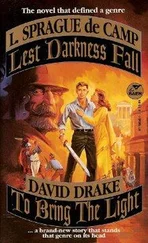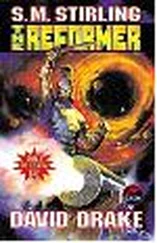David Drake - Balefires
Здесь есть возможность читать онлайн «David Drake - Balefires» весь текст электронной книги совершенно бесплатно (целиком полную версию без сокращений). В некоторых случаях можно слушать аудио, скачать через торрент в формате fb2 и присутствует краткое содержание. Жанр: Фантастика и фэнтези, на английском языке. Описание произведения, (предисловие) а так же отзывы посетителей доступны на портале библиотеки ЛибКат.
- Название:Balefires
- Автор:
- Жанр:
- Год:неизвестен
- ISBN:нет данных
- Рейтинг книги:5 / 5. Голосов: 1
-
Избранное:Добавить в избранное
- Отзывы:
-
Ваша оценка:
- 100
- 1
- 2
- 3
- 4
- 5
Balefires: краткое содержание, описание и аннотация
Предлагаем к чтению аннотацию, описание, краткое содержание или предисловие (зависит от того, что написал сам автор книги «Balefires»). Если вы не нашли необходимую информацию о книге — напишите в комментариях, мы постараемся отыскать её.
Balefires — читать онлайн бесплатно полную книгу (весь текст) целиком
Ниже представлен текст книги, разбитый по страницам. Система сохранения места последней прочитанной страницы, позволяет с удобством читать онлайн бесплатно книгу «Balefires», без необходимости каждый раз заново искать на чём Вы остановились. Поставьте закладку, и сможете в любой момент перейти на страницу, на которой закончили чтение.
Интервал:
Закладка:
Denkirch then gave me my first real knowledge of what he intended to do and how he would accomplish it as he explained the various pieces of apparatus. He began by plugging a set of earphones into the panel at the head of the bed and telling me to put them on. As I did so, he seated himself at an instrument consol along one wall and set several switches on it. The lights dimmed slightly as the surrounding machinery began to hum, and then a faint crackling began to come through the earphones. After a minute or so individual words stood out from the buzz in the background, and then a sudden, constant stream of names and occupations poured out, one after another without pause or stop. Some were in languages that I knew and some I could not even guess at, but all were delivered in the same flat, expressionless monotone of a congregation reading a unison prayer. "Maria Varrones, dependiente… Daniel Mulvihill, solicitor… Hauptmann Gerhard Kleppe, Leibstandarte Adolph Hitler…"
"What is this?" I gasped as I took off the earphones. "They sound like talking corpses."
"The minds of the dead," Denkirch corrected me, "not their bodies. And they're not even dead in the usual sense, of course. I always told you that the human mind was too wonderful an instrument to be thrown away after one using, Johnnie. There's my proof, out among the stars."
Then he went on to tell me the whole story, the story of the masterpiece of the most talented man of our generation. First he read everything he could on earlier attempts to penetrate the afterlife; the Elijahs and Bridey Murphies, the Cagliostros and Buddhas, and many explorers more ancient and terrible than they, hinted at on little-known parchments and inscriptions which must in themselves have raised a dark shadow over Denkirch's mind. This prodigious labor was followed by yet a greater one, the correlation of this data and the elimination of the less promising areas of endeavor.
In the end Denkirch had come to startling yet well-buttressed conclusions regarding human minds and bodies. As he had believed from the start, the mind did have an eternal existence apart from that of any one body, but it became clear that at no time could the mind be totally free; in other words, if it left one body it would be forced to instantly enter another.
I did not then understand why my palms began to sweat at those words; now it is only too clear what my subconscious mind realized and my conscious did not, but I merely wiped my hands on my thighs as I listened.
The obvious inference to be drawn from the situation Denkirch had just explained was that minds were transferred from the dead to the newborn-reincarnation or transmigration of souls. This was seductively simple but could not be applied to the human race alone since births and deaths would almost never balance precisely. An excess of minds might possibly be accommodated by housing two or more in one body, and this was the probable explanation of the trance visions of some of the greater wizards. They had simply suppressed the original mind of another body and looked through its eyes for a time, and the body's normal owner shortly drove the intruder back. Still, the large surplus of births over deaths meant that at least some minds had to be created afresh with their bodies, and the great rarity of provable cases of reincarnation-in human bodies, at least-indicated that this was true in all but a handful of cases. Where then did the minds of most dead men go? To the stars, Denkirch decided, and set about to prove it.
His first attempts were based on radio-telescopes and were complete failures. Then he began to work from the opposite end, modifying an encephalograph, and with this relatively crude instrument he caught the first hints of those terrible whispers from the stars, and that night he held all the knowledge of this primal mystery that he later only reinforced. All, that is, but its underlying meaning.
Later improvements had followed, far simpler than that final result that hung above the bed on which I sat, but just as effective for listening to the minds of our ancestors. Denkirch had earlier noted that different historical periods were grouped in recognizable parts of the sky, although there was considerable overlapping. Meaningful names were rare, of course, but many occupations gave keys to determine their dating. For instance, an auto mechanic had to be fairly recent, and a private of the Iron Brigade was just as useful as Abraham Lincoln. In general the most recent names were clustered on or in the direction of Deneb in Orion, while those of the period around World War One could be expected to be heard when the antenna was directed toward the Pleiades, and so on. It seemed probable that with the death of each occupied body, the human mind marched one more step in a slow, majestic procession around the universe.
This knowledge, this proof of his contentions, was soon not enough for Denkirch. He had a list of names, but what he now wanted was first-hand knowledge of the universe.
I can still remember how Denkirch looked that night as he talked, unconsciously pacing the room and waving his arms, the glitter in his eyes far brighter than that the soft fluorescents could give them. "Johnnie, you used to tell me that death would be oblivion. Now I can prove to you that it's not oblivion, it's the universe in all its wonder and glory! Think of it, Johnnie-thundering nitrogen cataracts under a pale green sun. Night in the dazzling center of a globular cluster! What have you ever wanted to see? You will-just wait for it. And now with this"-he waved toward the great cone waiting silently above me-"we won't even have to wait."
With that last sentence-his declaration of triumph-my spirits, which had been caught up despite themselves by his wild enthusiasm, sagged again into blind despair. I knew there was something wrong. Not in the theories, for they had been confirmed by the instruments; not in the instruments, for Denkirch was far too logical even in his fanaticism to accept his results without duplicating them in numerous cross-checks; still, somewhere…
"Do you mean the cones are matter transmitters?" I asked as the full significance of Denkirch's words sank in.
"Well, not transmitters, at least," he answered, "and I only designed them to receive minds, but I dare say they'd work quite well for matter too, if it could somehow be sent to them. Basically, though, they're designed to do a job similar to that of my earlier passive receivers and they will do everything the earlier ones would, as you heard. They go just one step farther. Not throwing a body across the universe, but pulling a mind back, and that's all that's necessary."
As Denkirch went on to explain his masterpiece I felt the same awe at its magnitude of conception as I had when he recounted the steps leading up to it, but under the soft cushion of marvel lay the same rending claws of fear, and my stomach knotted as I listened.
The difference between the cones and their forerunners lay in their ability to actively snatch a mind back from wherever it had gone when it left its original body. Lack of this feature, Denkirch thought, had prematurely exiled many ancient mystics to far worlds. If they, by sheer force of will, directed their spirits to another already occupied body, they would quickly be forced back into their own again. If instead they freed their minds without giving them any basic direction, as was probably the more common occurrence, they would be pulled irresistibly to Deneb just as though their bodies had died, unable to return without the same spiritual discipline by means of which they had come and which the alien environment might well make impossible until after their terran bodies had slipped into a mindless death.
The cones, keyed to Denkirch's mind when it was released from his body (also an electronic process, since Denkirch was a scientist rather than a mystic), would pull it back from Deneb when they were activated. Between the time his mind was severed from his brain by what he described as an interference field and the time I turned on the cones, Denkirch would have as much freedom on some strange planet as his new-born body would give him; freedom to run or burrow or fly or perhaps just to sit and absorb the newness of his surroundings.
Читать дальшеИнтервал:
Закладка:
Похожие книги на «Balefires»
Представляем Вашему вниманию похожие книги на «Balefires» списком для выбора. Мы отобрали схожую по названию и смыслу литературу в надежде предоставить читателям больше вариантов отыскать новые, интересные, ещё непрочитанные произведения.
Обсуждение, отзывы о книге «Balefires» и просто собственные мнения читателей. Оставьте ваши комментарии, напишите, что Вы думаете о произведении, его смысле или главных героях. Укажите что конкретно понравилось, а что нет, и почему Вы так считаете.











